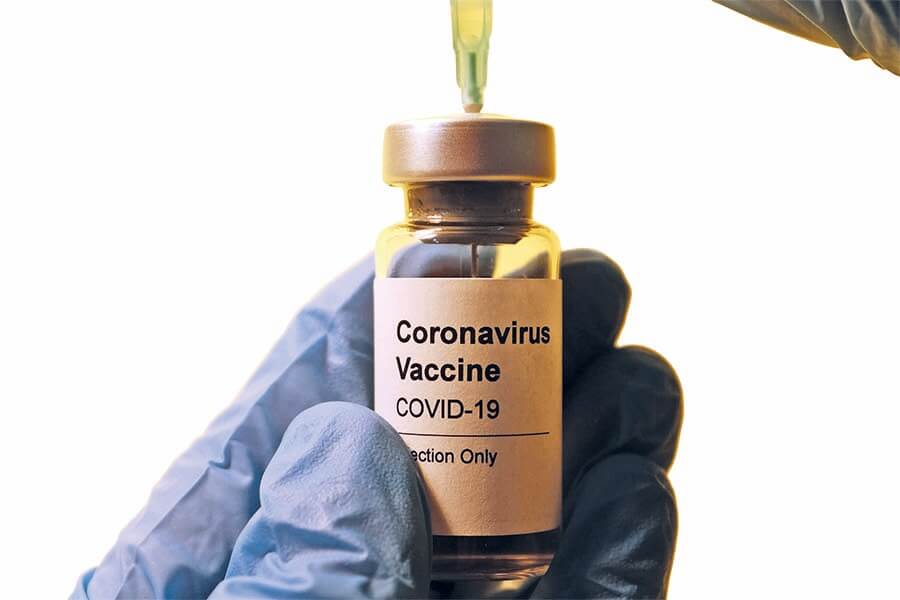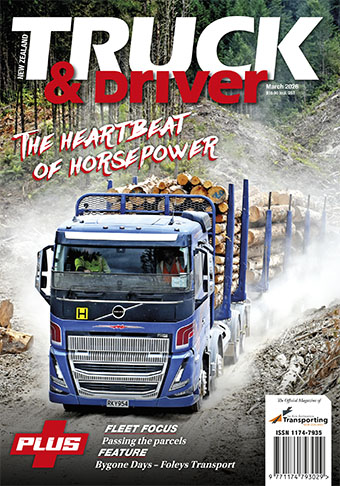Ia Ara Aotearoa Transporting New Zealand News


Truck drivers must be prioritised in vaccination rollout
The freight industry and the New Zealand economy in general require a plan for how we are going to open up and recover from the impacts of COVID-19.
Other countries are moving ahead with COVID-19 recovery plans and NZ needs to follow suit and move past the rapid alert level changes we have recently experienced.
In New South Wales, flareups in Sydney have been contained without a citywide lockdown or closing businesses. Instead, the focus is on lockdowns on the most affected suburbs and limits on gatherings – not banning them altogether.
Here, there doesn’t seem to be much evidence of this kind of planning – or even a way to reduce the huge holdups of freight at the Auckland borders when that city goes into Level 3.
During Auckland’s time in Level 3 recently, truck drivers were queued for up to six hours. This is just totally unacceptable – from a perishable goods, health and safety or, in the case of livestock operators, an animal welfare point of view.
...The freight industry and the New Zealand economy in general require a plan for how we are going to open up and recover from the impacts of COVID-19.
Other countries are moving ahead with COVID-19 recovery plans and NZ needs to follow suit and move past the rapid alert level changes we have recently experienced.
In New South Wales, flareups in Sydney have been contained without a citywide lockdown or closing businesses. Instead, the focus is on lockdowns on the most affected suburbs and limits on gatherings – not banning them altogether.
Here, there doesn’t seem to be much evidence of this kind of planning – or even a way to reduce the huge holdups of freight at the Auckland borders when that city goes into Level 3.
During Auckland’s time in Level 3 recently, truck drivers were queued for up to six hours. This is just totally unacceptable – from a perishable goods, health and safety or, in the case of livestock operators, an animal welfare point of view.
A group of business leaders has called on the Government to share its planning on a clear path out of COVID-19, given we will be living with it for some years. As a trading nation, we cannot remain locked off from the rest of the world indefinitely.
NZ business needs to reconnect with critical overseas customers, international students must return and we also need to develop safe travel zones to resume contact with friends and family.
The group wants to assist the Government in its longer-term planning by providing input and expertise into its strategy for virus management. It wants the status of NZ’s near to longterm COVID-19 strategy to be made available beyond Government circles, and, among other things, is calling for a clear explanation of the key metrics, thresholds and milestones officials are tracking to judge the ongoing performance against this strategy over time.
I think most NZers would agree with the group’s concerns, which include our access to vaccines, who will be getting them (and when), as well as future plans around testing, tracking and tracing, health passports and other technology to manage the vaccine rollout and future community outbreaks.
A future where people and goods can be moved safely is one we desperately need, and the Government’s recent purchase of 8.5 million additional doses of the Pfizer/BioNTech vaccine is welcome news.
Back in January I wrote to COVID-19 Response Minister Chris Hipkins to ask how the Government would be prioritising COVID-19 vaccinations for workers in sectors such as road freight, given the transport industry’s importance in keeping the supply chain running….no matter what the alert levels.
The Government announced its COVID-19 vaccination rollout plan on March 10, and at the time of writing I am still awaiting clarification of whether truck drivers are to be included in Group 2 – frontline workers and people living in high-risk settings.
In my opinion, truck drivers definitely qualify as a priority population. They are on our roads at all times of the day and night – day in, day out – delivering essential goods such as food and medicines. If they are not vaccinated early, the entire transport industry and the wider community will be at risk. I urge the Government to consider this when deciding who gets vaccinated first.
It doesn’t take much of a crystal ball to see a situation where high-risk businesses start demanding that any workers on their sites also be vaccinated.
In March, Transport Minister Michael Wood and Auckland Mayor Phil Goff announced the $31billion Auckland Transport Alignment Project (ATAP) 2021-‘31. Wood said it reflected and built upon the $28bn 2018 package, which focused on developing a rapid transit network, walking and cycling, safety and unlocking growth.
Along with National Road Carriers Association CEO David Aitken, I am disappointed that there is nothing in the plan about road freight, or the infrastructure needed for it to work efficiently.
When you consider how important road freight has been in keeping the country connected since COVID-19 reached our shores a year ago, I had expected vital routes such as the East-West Link to at least gain a mention.
Instead, increased road user charges and payments to the National Land Transport Fund appear to be diverted to prop up walking, cycling and public transport.
It’s about time this Government realised that continually ignoring the sector that moves our economy around will have detrimental consequences for NZ in the longterm. Consumer prices will rise and the costs to our exporters will eat into their already thin margins.



 + EQUIPMENT GUIDE - FREE
+ EQUIPMENT GUIDE - FREE
